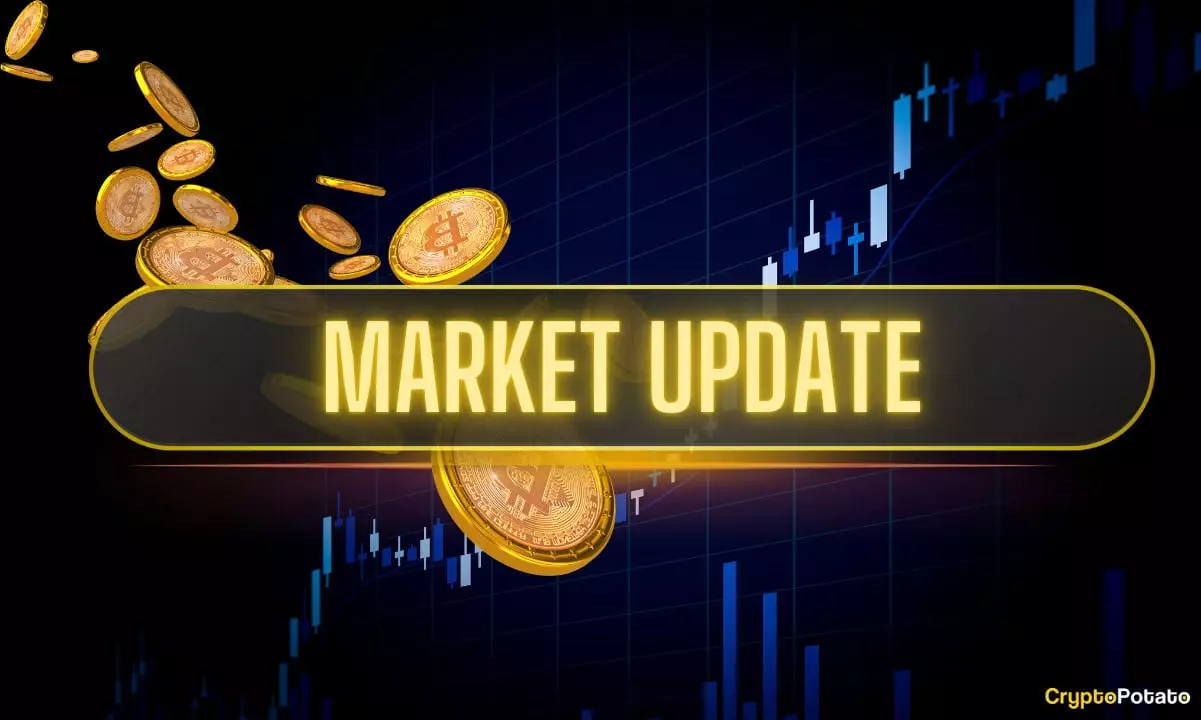In the tumultuous realm of cryptocurrency, Bitcoin remains a beacon of both opportunity and uncertainty. The past week illustrated this paradox as fluctuations in the market drew distinct lines between euphoria and apprehension. Bitcoin’s ability to bounce back from a five-month low of $75,000 to nearly $86,500 only to be met with subsequent rejections is indicative of a market grappling with significant external pressures. One cannot overlook not just the volatile nature of Bitcoin but also the broader economic landscape that contributes to its constant oscillation in value. The ongoing trade skirmishes, notably between the US and China, create an unpredictable atmosphere for investors, and Bitcoin is increasingly becoming a harbinger of this uncertainty.
The Impact of Government Policies on Cryptocurrency Holdings
Recent developments in U.S. monetary policy, particularly concerning tariffs, have proven to be significant factors for Bitcoin’s valuation. The decision to pause tariffs for various countries, minus China, provided a momentary surge for Bitcoin. However, such reliance on government action to dictate market movements raises serious concerns about the autonomy of cryptocurrencies. It poses an uncomfortable question: Are we seeing crypto as a genuine alternative financial system, or is it still at the mercy of traditional powers? There’s certainly a mismatch here; Bitcoin was designed to flourish in decentralized autonomy, yet the ongoing political theatrics can smother its independence, reducing it to a mere pawn in a larger geopolitical chess game.
The Rise of Bitcoin Whales: A Sign of Confidence or Manipulation?
In an intriguing twist, Bitcoin whales—those who hold vast quantities of the cryptocurrency—are engaging in aggressive accumulation, seemingly unfazed by price stability. This raises the question of whether this surge in buying signals an unwavering belief in Bitcoin’s future or a strategy for market manipulation. Those with considerable holdings possess the capacity to influence prices dramatically, and this dynamic can either orchestrate a renaissance or contribute to a market crash. It’s essential to scrutinize whether this whale activity reflects a burgeoning confidence among sophisticated investors or a more sinister endeavor to control the market’s direction.
The Controversial Idea of a National Bitcoin Reserve
Recently, reports emerged revealing that the current administration is contemplating establishing a national Bitcoin reserve, paving the way for the consideration of government revenue streams, including tariffs. While the intention might be to legitimize Bitcoin within the financial ecosystem, it delivers an unsettling message: Governments, in their quest for control, are trying to commandeer a currency that was built on the principles of independence and freedom. Introducing a Bitcoin reserve could lead to the centralization of power over a fundamentally decentralized asset. This represents a double-edged sword—potential legitimacy but at the cost of what makes Bitcoin valuable in the first place.
A Market on the Verge of Consolidation?
Bitcoin currently finds itself in a holding pattern, with a market cap hovering around $872 billion while exhibiting signs of a potential consolidation phase. The tepid investor actions indicate a wariness—one that underlines the lack of growth momentum in the face of increasing economic and political turbulence. As Bitcoin ETFs and corporate buyers work to stabilize its prices, there’s a looming realization that caution has replaced previous exuberance. Traders are settling into a “wait-and-see” stance, and while this is rational, it also highlights a growing impatience within the broader market.
Growing Criticism of Economic Authorities
As Bitcoin’s market behavior unfolds, the political discourse surrounding economic authorities like the Federal Reserve intensifies. Notably, President Donald Trump has openly criticized the Fed Chair Jerome Powell for his monetary policies, particularly amid signs of declining inflation. This atmosphere of distrust toward traditional economic institutions complicates the narrative around Bitcoin and other cryptocurrencies. The dissonance between traditional economic measures and the blockchain revolution creates a fertile ground for debate and scrutiny, forcing investors to navigate an increasingly complex landscape filled with contradictions.
In this environment, the only clear takeaway is that Bitcoin remains a complex asset, caught between the expectations of its enthusiasts and the sobering realities of external economic pressures. It serves as a reminder that while potential for profit exists, so too does the potential for chaos.















